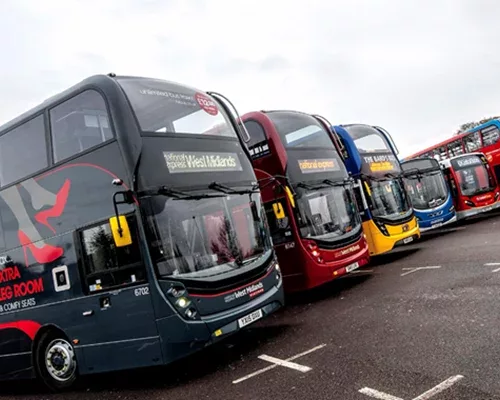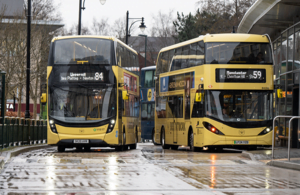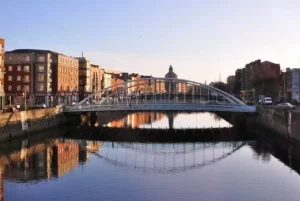Almost one in 10 local bus services were axed in Great Britain in the last year despite government promises to improve local transport connectivity being a key pillar of its levelling up agenda.
The reductions – equivalent to more than 1,000 registered routes – follow the publication of a national bus strategy for England in 2021, aimed at improving routes and service frequencies. The figures suggest the “bus back better” strategy, conceived under the then prime minister Boris Johnson, has failed to halt the decline in local bus services, reports the Guardian in an exclusive story.
A Guardian analysis of data from the Traffic Commissioners – the body responsible for registration of local bus services – found the number of live registered services fell 9.5% between January 2022 and 2023.
People in communities such as Sheffield, Bath, Lincoln or Stoke-on-Trent, among many others, told the Guardian how axed, unreliable or infrequently serviced bus routes had forced them to abandon medical appointments, house purchases or going to work.
Falling local bus registrations is a trend that has continued for over a decade, matched by a consistent decline in vehicle miles, passenger journeys, and local government funding. DfT figures show the number of miles driven by local buses in England fell 27% in the 10 years ending 2021-22. The pandemic has also had an impact, with a 16% reduction in miles driven between 2020-21 and 2021-22. Passenger journeys have continued to fall, especially on services outside London, said the Guardian report.
One of the government’s core 12 levelling up missions is to improve local transport connectivity across the UK to the standards of London by 2030. Last year, research by the Campaign for Better Transport found just 40% of transport authorities applying for funding under the bus back better strategy were allocated money, and those that were successful were only allocated 24% of what they had asked for.
Peter Travis, a co-chair of Somerset Bus Partnership, which was set up when bus back better was launched in March 2021, said drastic further cuts of bus routes were inevitable unless the bus recovery grant was extended beyond April.
“The high hopes for bus back better have been dashed as the government cannibalised that funding, designed to improve buses, and used it to keep buses running during Covid,” he said.
“It was going to offer an extraordinary transformation across England. Somerset asked for £165m and got £12m in April last year. We were grateful for the £12m, but we needed £165m to transform our transport here.”
A DfT spokesperson said it was committed to the national bus strategy. They said: “We have invested £2bn to mitigate the impact of the pandemic and help maintain existing bus routes and over £1bn through bus service improvement plans, while still maintaining the annual £250m bus service operator grant to support services.
“We’ve also invested £60m to cap single bus tickets at £2 across England from 1 January to 31 March to tackle congestion and deliver real savings for passengers.”





















